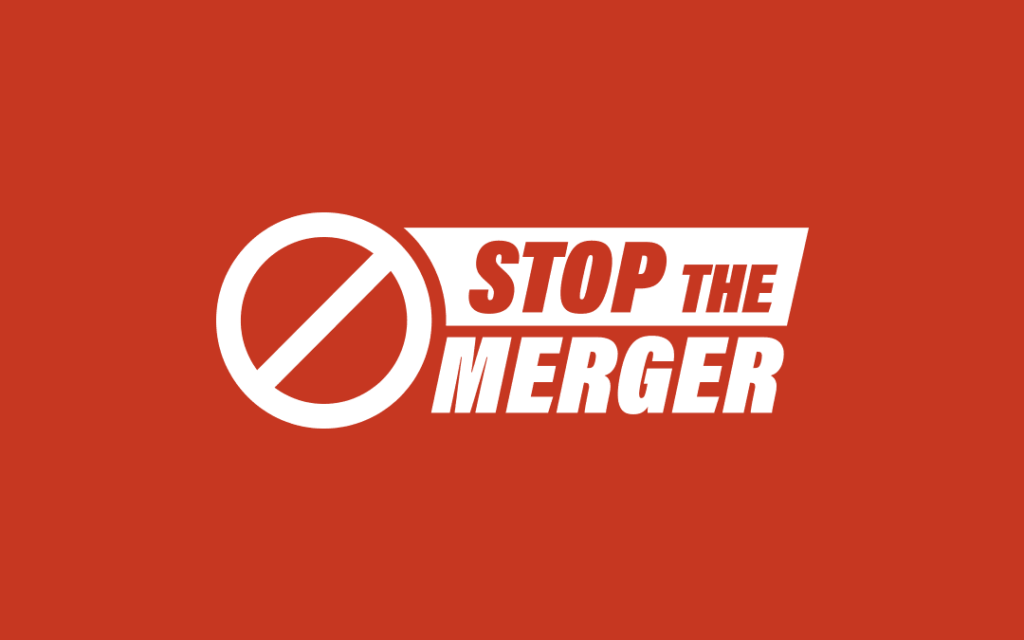Discover the key details and latest updates on the Kroger Albertsons merger, including legal challenges, potential impacts on competition and consumers, and stock market reactions.
Learn about the proposed benefits and future prospects of this significant $24.6 billion merger
In recent news, two of the largest grocery chains in the United States are merging: Kroger and Albertsons.
The $24.6 billion merger is envisioned to combine two grocery powerhouses to rival not just Walmart and Amazon, but other retail giants like Target, Costco, Home Depot, and Lowe’s.
That outcome, though, a pair of Oregon and Washington court rulings have temporarily blocked the merger due to antitrust concerns.
Table of Contents Show
Highlights on Kroger Albertsons Merger
- On Tuesday, courts in Oregon and Washington have temporarily blocked the merger of Kroger and Albertsons, valued at $24.6 billion.
- The aim was to merge to create a grocery giant that would be able to take on Walmart and Amazon.
- This was due to legal challenges that cited antitrust concerns and the belief that if the merger takes place, it would hurt competition and consumers.
- Kroger and Albertsons prepared to appeal the rulings, but have not yet said how they will do so.
- Unknown is if the merger will go through, with continuing antitrust cases in Colorado and other states.

The Merger Proposal
Kroger and Albertsons have also joined forces in 2022 by announcing their intention to merge; joining forces to build a more formidable competitor against the retail landscape.
Such a merger would be a merger of the biggest grocery chains under one broad umbrella: Safeway, Vons, Harris Teeter and Fred Meyer.
They said merging would let the combined resources help drive prices down at the grocery store, pay higher wages to workers and improve the shopping experience for customers.
Kroger and Albertsons responded
Kroger and Albertsons were all disappointed with the court rulings.
“A significant portion of the purported merger efficiencies are neither merger-specific nor verifiable. Without evidence of merger-specific, verifiable efficiencies, the benefits of which will be passed through to consumers, defendants cannot rebut the presumption of anticompetitive effects”
: Nelson
“Overlook the substantial evidence presented at trial showing that a merger between Kroger and Albertsons would advance the company’s decades-long commitment to lowering prices, respecting collective bargaining agreements, and is in the best interests of customers, associates, and the broader competitive environment in a rapidly evolving grocery landscape.”
Kroger said the Federal and Washington State Decisions
“We believe we clearly outlined during the proceedings how the proposed merger would expand competition, lower prices, increase associate wages, protect union jobs, and enhance customers’ shopping experience,” Albertsons said.
“We are carefully reviewing the Court’s opinion and are evaluating our options in accordance with the merger agreement.”
Albertsons said in an emailed response
Kroger insisted the merger would have meant over $1 billion annually in savings to shoppers — more than doubled since 2020 — as well as increased wages for grocery workers, and improvements to Albertsons stores.
But Albertsons echoed those sentiments, saying that the merger would have helped lower prices and improve the shopping experience for a broader range of customers.
The temporary injunctions haven’t helped, the companies are still evaluating what their next steps are and whether they might appeal.
The Stakes, The Potential Benefits
“What we will deliver to consumers and the communities we serve are savings of more than $1 billion, $1 billion in wages for grocery workers, and we will invest at least $1.3 billion in Albertsons stores,’
Kroger and Albertsons said in a statement.
But they also hoped that the merger would help the combined entity become stronger than giants like Walmart and Amazon with whom it could not negotiate as a single entity.
Legal Challenges and Rulings
But the Federal Trade Commission (FTC), along with attorneys general from eight states, joined in February 2024, filing lawsuits seeking to block the merger.
But the primary problem was that the merger would destroy competition and hurt consumers.
Both were temporary injunctions: U.S. District Judge Adrienne Nelson in Oregon and King County Superior Court Judge Marshall Ferguson in Washington.
The two ruled the proposed merger would eliminate Kroger’s competition with Albertsons in several markets and raise prices for consumers.
Competition and consumers’ impact
On the other hand, the proposed merger would significantly reduce competition in several markets, the courts said.
Last month, the companies agreed to sell 579 stores to C&S Wholesale Grocers in order to restore competition but that plan was deemed insufficient.
C&S said it couldn’t properly take care of the divested stores.
It’s direct contradiction to the companies’ claims that all this is good for consumers, they are sort of making it up because of the lack of competition that is set to directly lead to higher prices and fewer choices for consumers.
Impact on Company Shares

Stock Market Reaction on Kroger Albertsons merger
Announcement as well as blocking of Kroger-Albertsons merger had important ramifications for stock prices of both companies.
Investors were initially upbeat when the merger was proposed last year, anticipating growth and a bigger piece of the market for the combined entity.
The recent court decisions however have prompted different reactions in the stock market.
Kroger’s Stock Performance
The court’s decision to block the merger led to an increase in Kroger’s stock of over 5%, although the stock was still lower than it was just before John’s ousting on Thursday.
On the other hand, investors took it as a positive ruling, as it basically ended the uncertainty as far as the merger was concerned and there was no harm to Kroger to continue their operations with all the merges happening unless it does not involve Albertsons.
On the whole, Kroger stock has grown 30% or so in the past 12 months.
Albertsons’ Stock Performance
Albertsons stock meanwhile dropped more than 2% after the court ruling.
A setback for Albertsons, which had hoped to leverage the merger to win access to Kroger’s resources and market reach, the ruling was seen as a ‘disappointing outcome.’
Meanwhile, Albertsons stock has struggled all year, down 20 percent from a year ago.
Investor Sentiment
Investors are watching the back and forth between the legal proceedings and the responses of the companies to the court rulings.
Some investors are hoping for the best, but others are concerned the merger will be bad for both companies’ longer term financials.
Long-Term Implications
How the companies handle the legal challenges and go forward will determine how Kroger and Albertson’s share values take in the long term.
Everything is dependent on whether the companies decide to appeal the rulings, and pursue the merger, and investor sentiment may shift depending on the outcomes of the legal proceedings.
If the companies decide to shun the merger, they will ultimately be left with dealing with independent growth strategies, which they need to address to regain investor confidence.
C&S Wholesale Grocers Role
To satisfy antitrust concerns, part of the merger plan was to sell 579 stores to C&S Wholesale Grocers.
The courts and FTC, however, felt that this was not good enough.
Even C&S Wholesale Grocers, a large wholesaler, was thought to be too large of a company to realistically manage the stores in a way that would preserve competitive market conditions.
The point of contention in the legal challenges concerned that part of the plan.
Prospects
The merger’s future remains uncertain.
Granted, the temporary injunctions have halted the momentum of the process, but they don’t force companies to change their plans.
A major factor in deciding whether to allow the merger to proceed will be what happens in cases like those brought by Colorado which are still ongoing.
Kroger and Albertsons are both mulling their options and looking at possible appeals.
But proponents of the merger contend that the just merging entities are necessary to compete with bigger, non-unionized competitors, while opponents are wary of market consolidation and consumer effect.
FAQs
Q. Just why did the Kroger-Albertsons merger get blocked?
The merger was blocked for being anti-trust, due to which court decreed that it will harm consumers and will stifle the competition.
Q. For how much was the merger supposed to be worth?
The deal had an agreed value of $24.6 billion.
Q. What is next for Kroger and Albertsons?
The companies are looking at what, if anything, to do next, including whether to appeal the court rulings.
Q. According to Kroger, how many stores were the company and Albertsons planning to sell to C&S Wholesale Grocers?
C&S Wholesale Grocers was buying 579 of their stores.
Q. What did Kroger and Albertsons say the merger would offer?
And the merger would bring lower grocery prices, higher wages for workers, and better shopping experiences, they said.
Disclaimer
The information provided in this article is based on the latest available data and may be subject to change. Please consult official sources for the most up-to-date information.

Essie Walker is a versatile blogger and skilled wordsmith with a passion for storytelling.
Essie covers a wide range of topics on her blog, including lifestyle, wellness, travel, and technology, always striving to provide her readers with fresh perspectives and actionable insights







